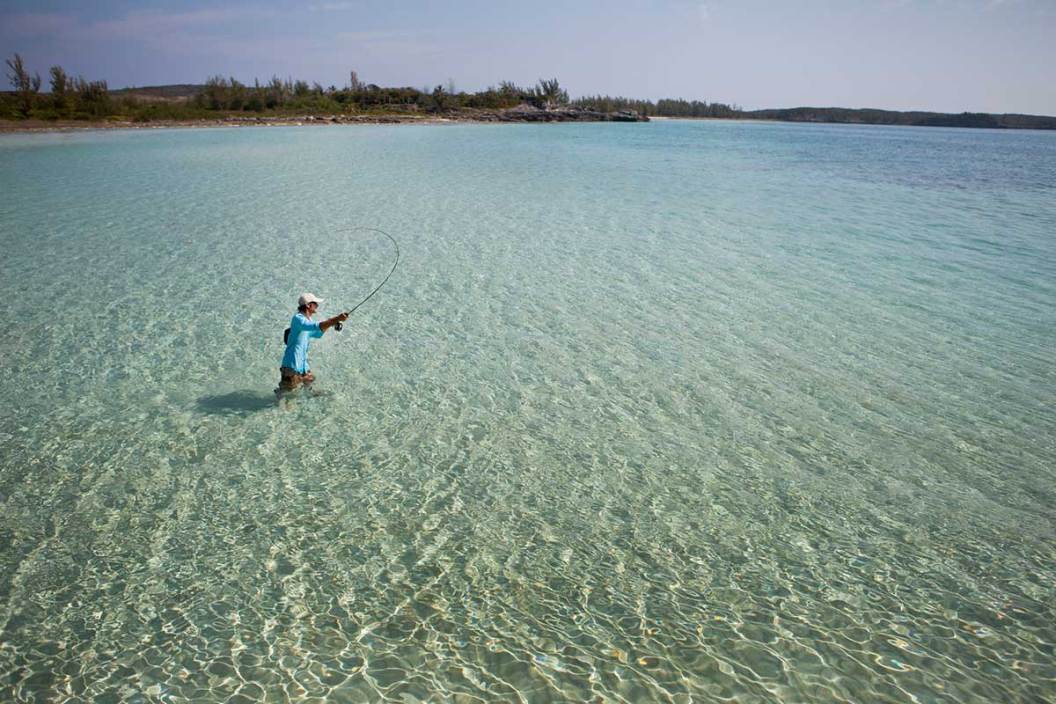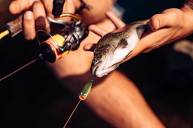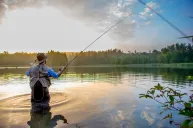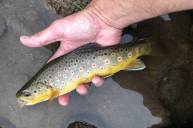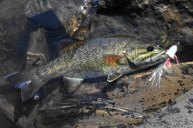Saltwater fly fishing can target some of the world's most exciting gamefish species, but you'll want a dedicated fly rod and reel for it.
Saltwater fly fishing can take you to places that are great enough to visit without your fishing gear. When you find yourself in the middle of some of the best angling in the world, it's no wonder it's so popular.
On top of that, a good saltwater fly rod and reel combo can put you on the fish of a lifetime. However, you shouldn't try to use your three weight trout rod you normally use on small streams. Any angler who wants to truly do saltwater fly fishing right needs a dedicated rod and reel combo.
Fishing in saltwater has many forms and can be enjoyed in a lot of ways. You can take part in some saltwater fly fishing in the surf, from a pier, from a boat, or by wading the flats, but one thing is for sure: you'll never be bored.
Here are the main reasons why we'd suggest getting a separate rod and reel for fly fishing in saltwater.
Difference of Species
There are tarpon, giant trevally, permit, bonefish, barracuda, and even sailfish waiting in the ocean, and presenting them with a fly they're willing to take becomes an amazing experience from the first cast.
Catching a saltwater fish of this magnitude, velocity, and power on a fly fishing rig is the stuff of dreams for many anglers worldwide. There's a long line of big, fierce, aggressive, and incredibly powerful saltwater gamefish, and hooking one on a fly rod requires robust strength and strong, thick lines and leaders. Odds are those aren't included in your lightweight freshwater fly combo.
It's nice to have a reel that holds a lot of backing, something closer to a 12-weight rod, and the strongest knots you can manage.
Bigger Fish, Bigger Flies
Along with the notes about the differing species in saltwater comes the obvious size difference. In order to catch a bigger fish, you're often going to need to tie on a bigger fly.
Swinging flies that are meant for saltwater species is a lot different than presenting that elk hair caddis that weighs as much as a blade of grass. Try it with a small, lightweight freshwater rod, and you're going to be tired out before your first hook up.
Toothy Mouths
Sometimes you encounter freshwater predatory fish that have a mouth full of sharp teeth, but it's far more common in saltwater. If you're fly fishing in the salt, the thin, nearly invisible leader typically found on a freshwater rod isn't going to cut it.
Owning a saltwater fly rod and reel allows you to customize your leader and tippet so that you know you're using something strong and durable, while not wasting it on smaller, less aggressive fish that don't need it.
Salt Corrosion From the Water (and the Air)
If you didn't already know, saltwater (and even the humid, salty air surrounding it) can do a number on metal, fast-tracking rust and breaking down strength quicker than you'd ever realize.
If you're devoting a rod and reel to only saltwater fishing, then you're going to be more prone to ensure you're rinsing and cleaning that gear thoroughly after each use. No one wants to lose a reel or replace some guides when it could have easily been prevented with a little extra care.
Saltwater Fly Fishing
The best way to start saltwater fly angling is under the guidance of a veteran mentor that can show you all the ropes first.
With saltwater fly fishing, some of the casting techniques and gear requirements will be different, especially when encountering conditions like wind and waves. It can be one of the most rewarding ways to catch fish, but it can also humble you in a heartbeat.
Make sure you've got the right gear, which in our opinion means a fly rod and fly reel that you only use for saltwater. After that, it is simply a matter of where you want to go and what you want to catch.
Please check out my book "The Hunter's Way" from HarperCollins. Be sure to follow my webpage, or on Facebook and YouTube. Go to Rack Hub and use the coupon code Craiger for a new way to display those antler sheds!
